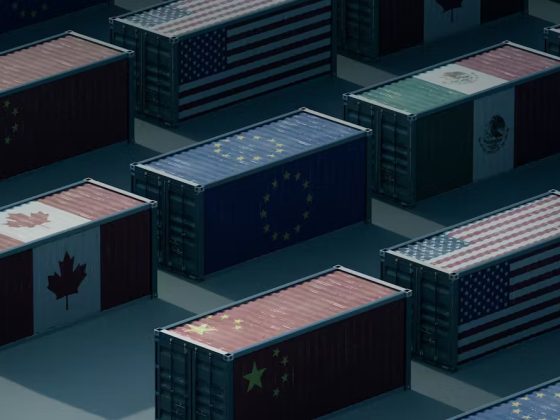Martin Luther King Jr knew he was risking his life. The US civil rights leader, who would be assassinated in 1968 while campaigning for equality, realised that his safety, and that of his family and co-activists, were constantly in danger. In 1958, he had been stabbed and nearly killed during a book-signing event in Harlem. In 1956, during his involvement in the Montgomery bus boycott, the front porch of his home had been bombed. Yet King did not relent. After receiving a menacing phone call one night in January of 1956, King turned to God for the strength to carry on.
‘I am here taking a stand for what I believe is right. But now I am afraid,’ King prayed at his kitchen table. ‘At that moment,’ he wrote in Stride Toward Freedom (1958), ‘I experienced the presence of the Divine as I had never experienced God before. It seemed as though I could hear the quiet assurance of an inner voice saying: “Stand up for justice, stand up for truth; and God will be at your side forever.” Almost at once my fears began to go. My uncertainty disappeared. I was ready to face anything.’

King’s faith in God helped him weather the storms of his calling. But his abiding beliefs in progress and the ideals of his nation also demanded faith in a certain kind of creator: an immanent God, working directly in the world through human beings, relying on them to carry out His will on Earth. Indeed, King’s belief in God’s immanence helped to strengthen his optimism about nonviolence and democracy, his ability to withstand disappointment, death threats, political setbacks and the seemingly irreversible condition of human sinfulness. God, he believed, was in the world, and His will would prevail, even when the evidence of moral victories seemed slim. The faithful need only stay the righteous course.
King’s theology took shape during divinity school at Crozer Theological Seminary in Philadelphia, where he studied. Students and faculty at Crozer debated whether God remained wholly transcendent, removed from the world and humans’ daily lives, or if He was immanent, and thus present alongside mankind in the struggle for moral order. King refused to behold God in this either/or manner, concluding that He existed beyond time, space, nature and humanity, and yet moved as a spirit or force within history and the evolutionary process. ‘God is immanent in the world,’ King wrote at Crozer. ‘[He] is not a deity who stands outside of the world and does nothing, but he is a deity immanent in the process of history.’ King would go on to write his dissertation on this subject. He criticised the view popularised by, among others, the Swiss theologian Karl Barth, who insisted that God was wholly transcendent and unknowable.
For King, the stakes of this theological debate were great. If God existed as an impersonal and transcendent entity, Christians could argue against the need to take action on issues of justice, equality and civil rights. After all, why fight for a cause if humans had no effect on God’s plan? King had grasped the implications of the doctrine of a wholly transcendent God and he preached a different message: Americans would never experience true democracy, blacks would never know true freedom, and Christians could not claim to follow Jesus unless they put religious principles into practice on a daily basis. Such was the process, King believed, of building the Kingdom of God on Earth. It was also the process of cultivating democracy and other ideals. If everyone, as a child of God, deserved to be heard and respected, then democracy became another way for King to talk about God’s purpose, immanently revealed in people’s lives.
The concept of divine immanence became less theoretical once King learned about the activism of Mahatma Gandhi. Though Gandhi was not a Christian, his method of satyagraha, meaning ‘truth-force’ or, as King put it, ‘soul force’, fascinated King. Gandhi challenged the British empire by forcing them to confront their Indian subjects as fellow humans, deserving fair treatment. He did so without firing a shot. From Gandhi’s example, King saw how humans practising God’s love, particularly through nonviolence and disciplined self-comportment, could unleash the power of God’s love in the world. He acknowledged Gandhi’s method as ‘the guiding light of our technique of nonviolent social change’ during the Montgomery bus boycott. In Selma, Alabama and in Memphis, Tennessee, and throughout the US South, King continued to utilise Gandhian strategies of direct action throughout his campaign against American racism. For King, in short, divine immanence was a call to action. ‘All humanity is involved in a single process,’ he contended, working in concert with God’s Holy Spirit, the ultimate ‘community creating reality that moves through history.’ God and mankind, in other words, moved together. From the perspective of theological doctrine, King had reconciled immanence and transcendence.
King was all too aware that forces of opposition to God’s will filled the world too. He saw the fruits of his efforts in incremental reforms, but small results could be discouraging. Here is where King’s faith in an immanent God stepped in. The night before his assassination, while addressing a group of sanitation workers on strike in Memphis, King spoke of God. Though he warned of ‘difficult days ahead’, he claimed that God had allowed him ‘to go up to the mountain’ and see the ‘Promised Land’. ‘I may not get there with you. But I want you to know tonight, that we, as a people, will get to the Promised Land … Mine eyes have seen the glory of the coming of the Lord!’
King’s courage rested upon that conviction. God’s truth would march on as an intrinsic force in the world through his allies. It would help the faithful build the brotherhood of man. A transcendent God could not do it alone, a certainty for King that made him willing to do the work. But King could not do it alone either. He called upon both black and white activists, the entire nation and the worldwide community to join him in the cause, which he knew would continue beyond his lifetime. On the eve of his death, he told the crowd he was not worried. In the end, he believed, immanence would overcome everything.![]()
Vaneesa Cook
This article was originally published at Aeon and has been republished under Creative Commons.









